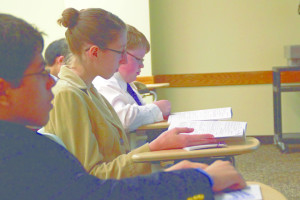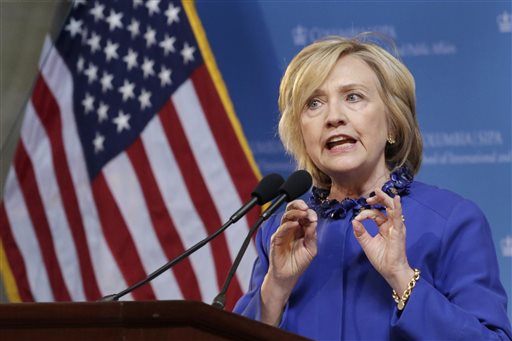
By Jill Power | The Duquesne Duke
Duquesne hosted over 800 students from 75 schools across both Allegheny and Westmoreland counties this weekend for the 80th annual Pennsylvania Junior Academy of Science Regional Competition.
Saturday’s event was the first in Region 7’s history that was held at a University. Allegheny and Westmoreland counties constitute Region 7, out of 12 total regions across the state.
The PJAS Competition is open to all students from grades 7 to 12. They are required to attain a sponsor for their research, typically their teacher. Students must then form a hypothesis, perform an experiment, collect and analyze data and present their findings to a panel of judges.
Students are evaluated on a 5-point scale, with a 4.0 or higher earning a first place, 3.0-3.99 earning second place, and 2.99 or lower third place. All students who receive a first place are invited to attend the state competition, held at Penn State University.
Students were permitted to choose experiments from the following areas of study: behavioral psychology, biology, biochemistry, botany, chemistry, computer science, earth and space, ecology, mathematics, microbiology, physics and zoology.
Philip Reeder, dean of the Bayer School, said that part of the reason why the school brought PJAS to the University was “to get the best and the brightest sciences students here on campus and show them how great Duquesne is.”
“Part of Duquesne’s mission is to perform service,” Reeder said.
According to Susan Morgan, director of the Allegheny and Westmoreland County’s PJAS Regional Competitions, Jeffery Evanseck, professor of biology and biochemistry in the Bayer School of Natural and Environmental Sciences, began his pursuit of the organization a year ago, when he suggested that the competition be held at Duquesne.
Morgan said she hopes to continue holding the competition at Duquesne. She said the experience, particularly the availability and attentiveness of the many students and staff involved was “phenomenal.”
In her 20 years of involvement with the organization, Morgan saw the competition held at various schools.
“It was like reinventing the wheel,” Morgan said.
If the competition continues to be held at Duquesne, the organization does not have to reiterate the guidelines every year to its new host. Morgan, who is in charge of choosing Region 7’s competition location, said that factors such as parking and room availability that determine where the competition will be held were all met by Duquesne.
The competition was not paid for by the University, nor was Duquesne compensated for its involvement. Two of the three major sponsors of the event, however, were Duquesne offices. The Bayer School contributed $10,000 to the competition, and the Enrollment Management Office was also involved in funding the event. Total cost is still being determined by the organization.
The Bayer Corporation was the third main sponsor. The PJAS website recognized the corporation as a “Gold Sponsor.”



